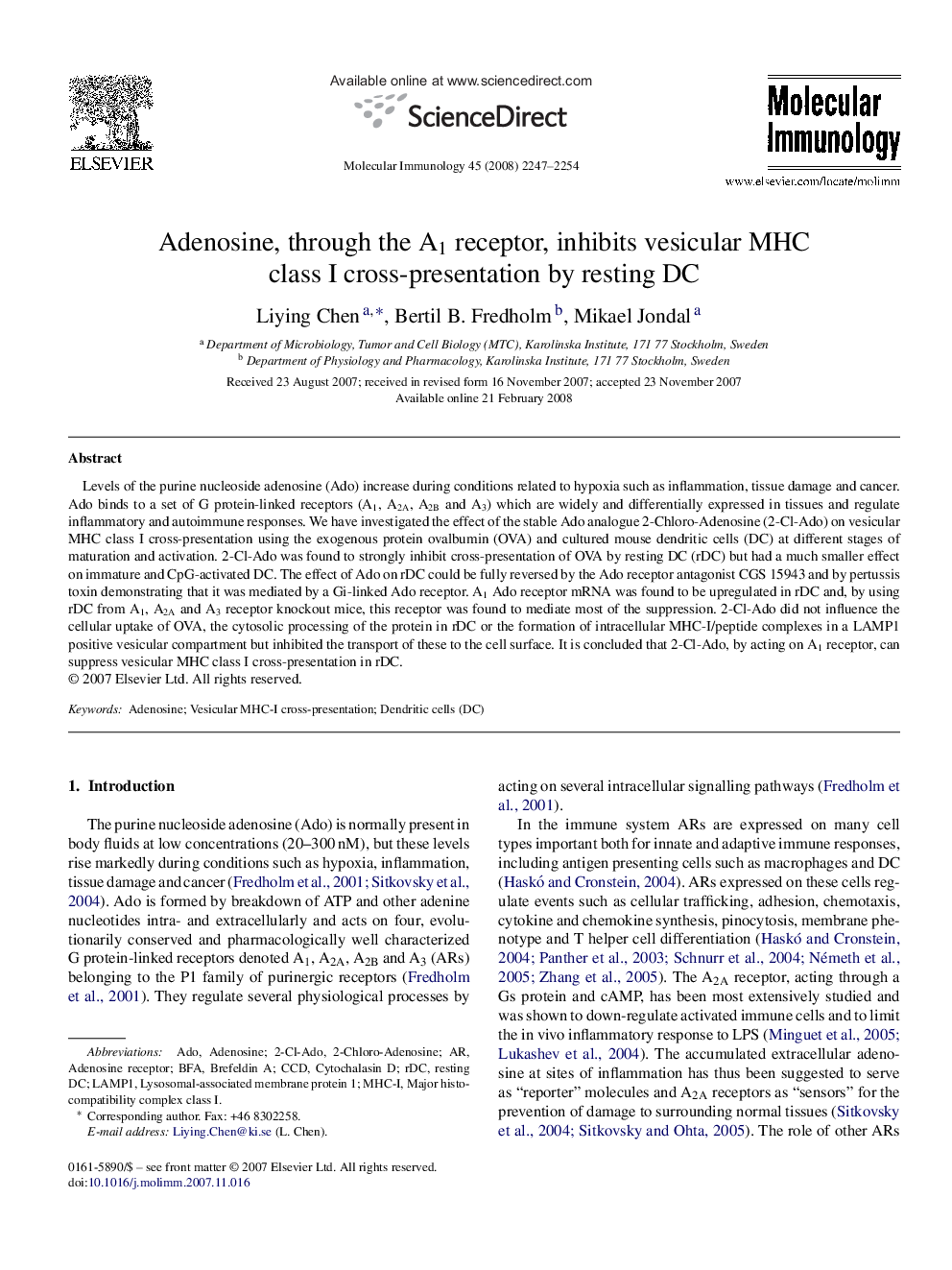| Article ID | Journal | Published Year | Pages | File Type |
|---|---|---|---|---|
| 2832046 | Molecular Immunology | 2008 | 8 Pages |
Levels of the purine nucleoside adenosine (Ado) increase during conditions related to hypoxia such as inflammation, tissue damage and cancer. Ado binds to a set of G protein-linked receptors (A1, A2A, A2B and A3) which are widely and differentially expressed in tissues and regulate inflammatory and autoimmune responses. We have investigated the effect of the stable Ado analogue 2-Chloro-Adenosine (2-Cl-Ado) on vesicular MHC class I cross-presentation using the exogenous protein ovalbumin (OVA) and cultured mouse dendritic cells (DC) at different stages of maturation and activation. 2-Cl-Ado was found to strongly inhibit cross-presentation of OVA by resting DC (rDC) but had a much smaller effect on immature and CpG-activated DC. The effect of Ado on rDC could be fully reversed by the Ado receptor antagonist CGS 15943 and by pertussis toxin demonstrating that it was mediated by a Gi-linked Ado receptor. A1 Ado receptor mRNA was found to be upregulated in rDC and, by using rDC from A1, A2A and A3 receptor knockout mice, this receptor was found to mediate most of the suppression. 2-Cl-Ado did not influence the cellular uptake of OVA, the cytosolic processing of the protein in rDC or the formation of intracellular MHC-I/peptide complexes in a LAMP1 positive vesicular compartment but inhibited the transport of these to the cell surface. It is concluded that 2-Cl-Ado, by acting on A1 receptor, can suppress vesicular MHC class I cross-presentation in rDC.
